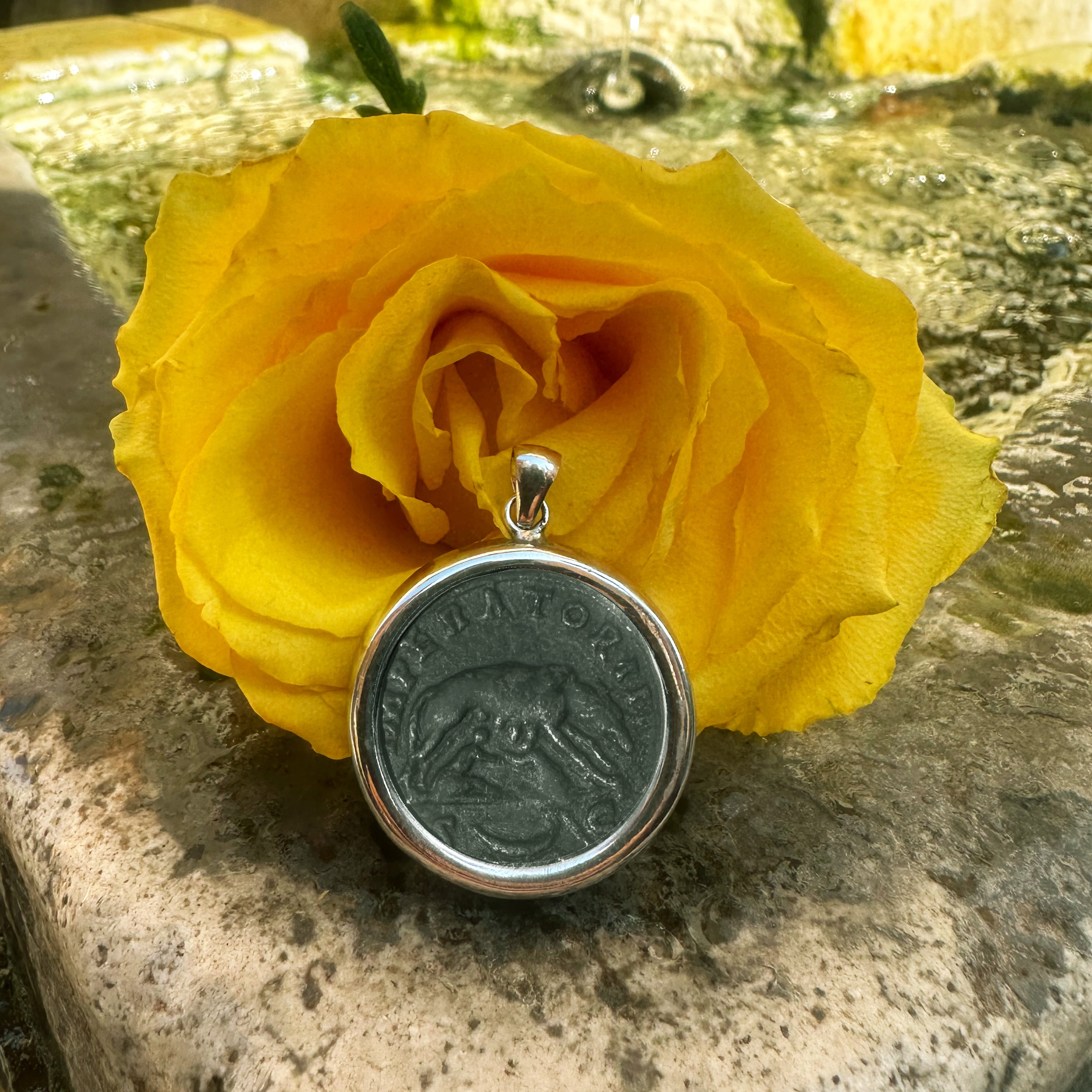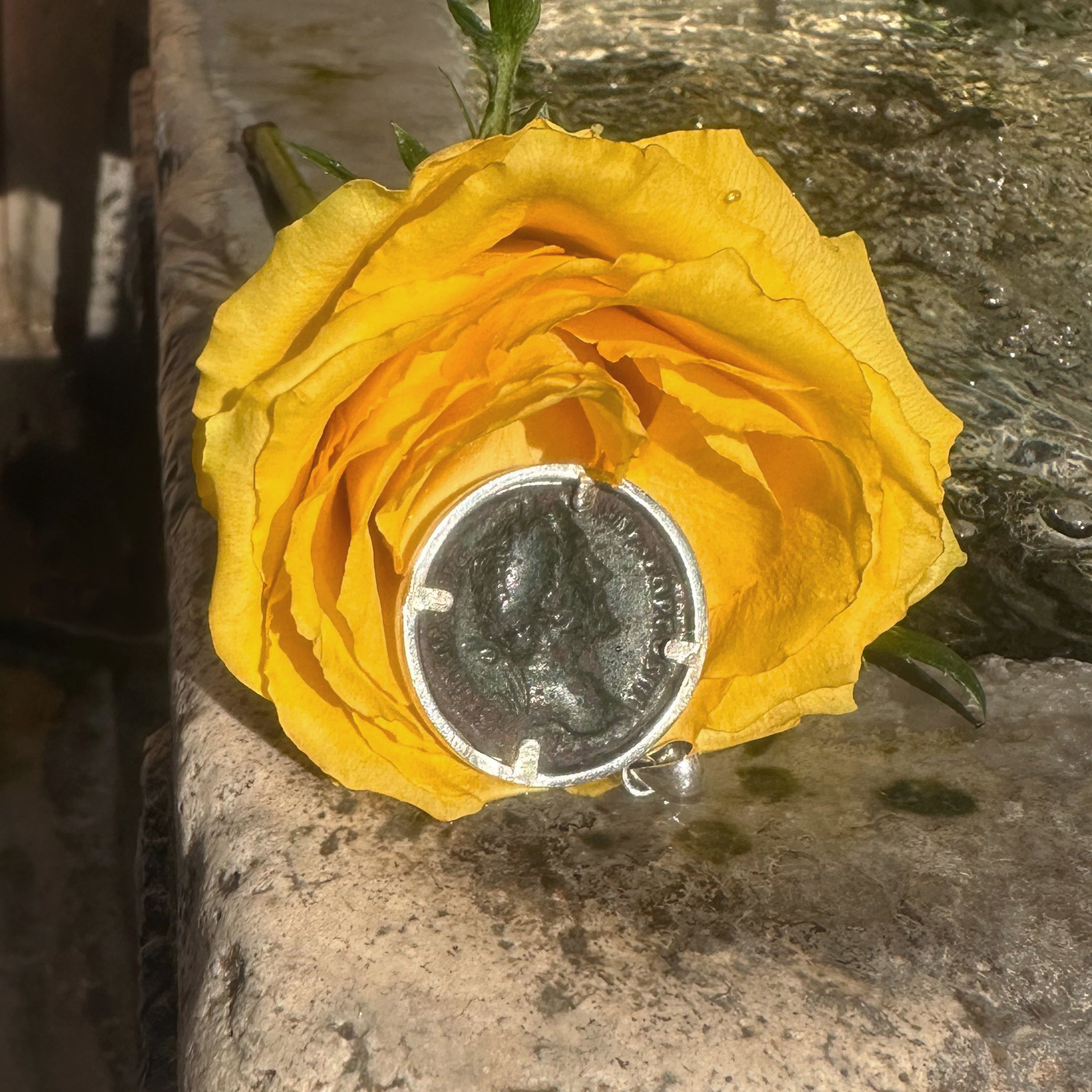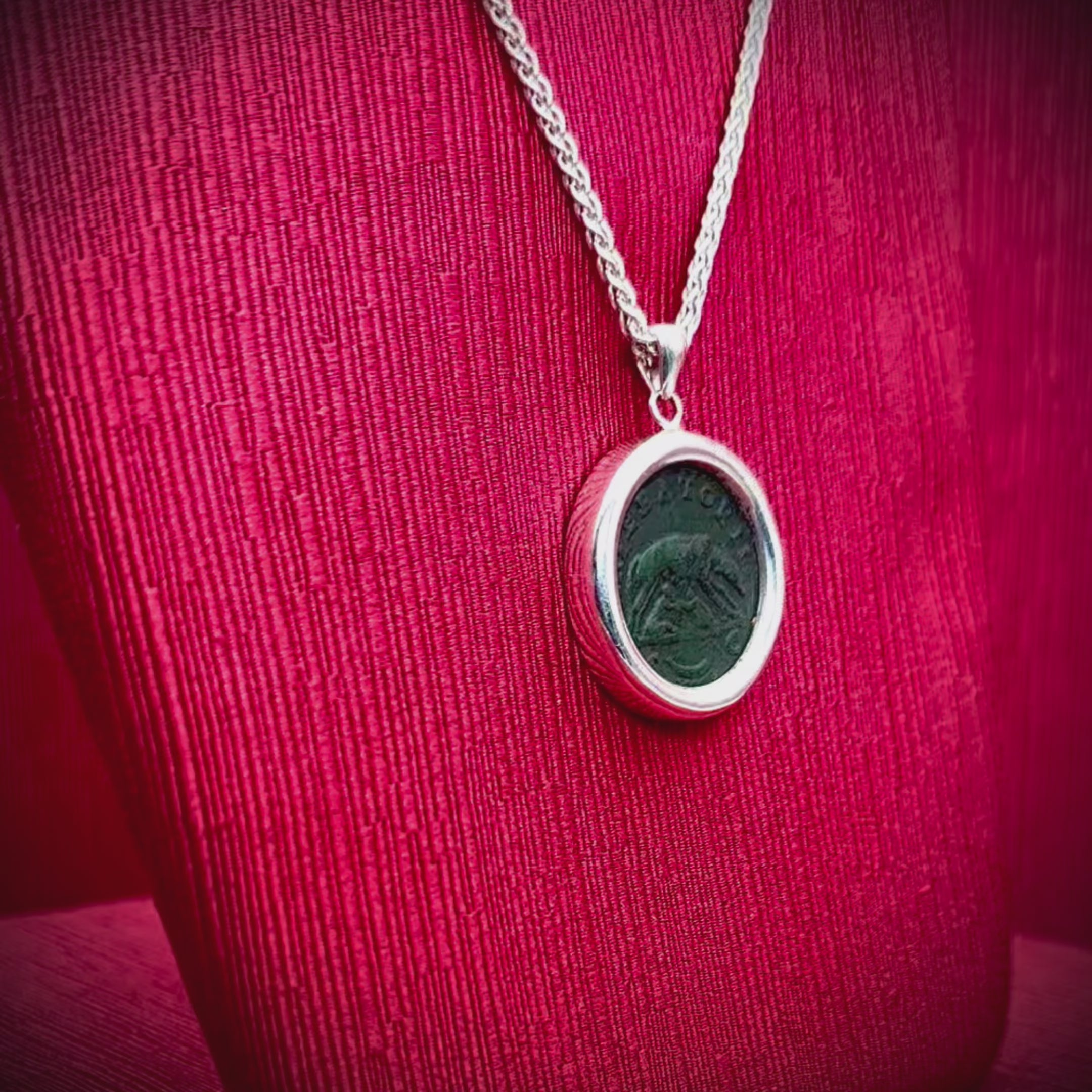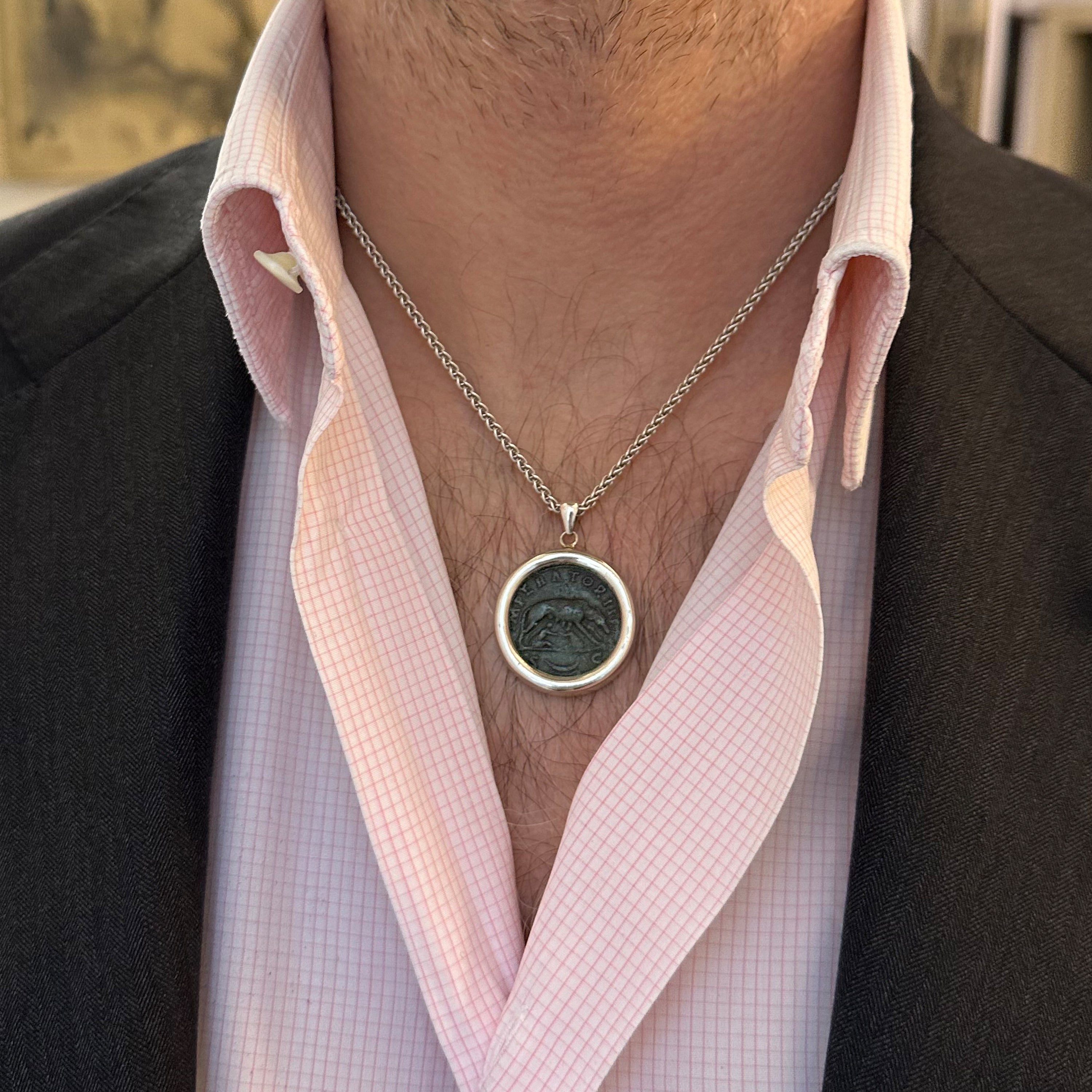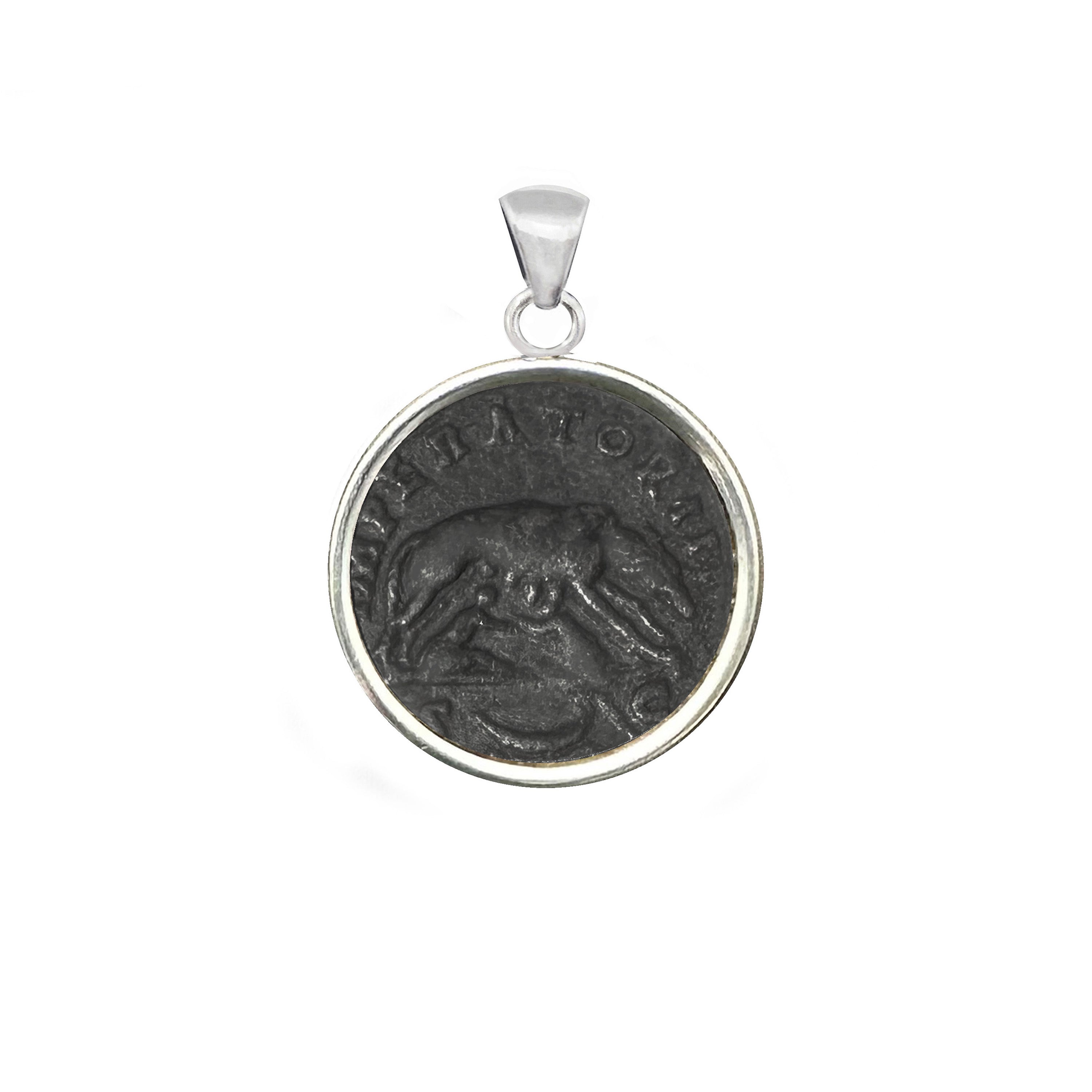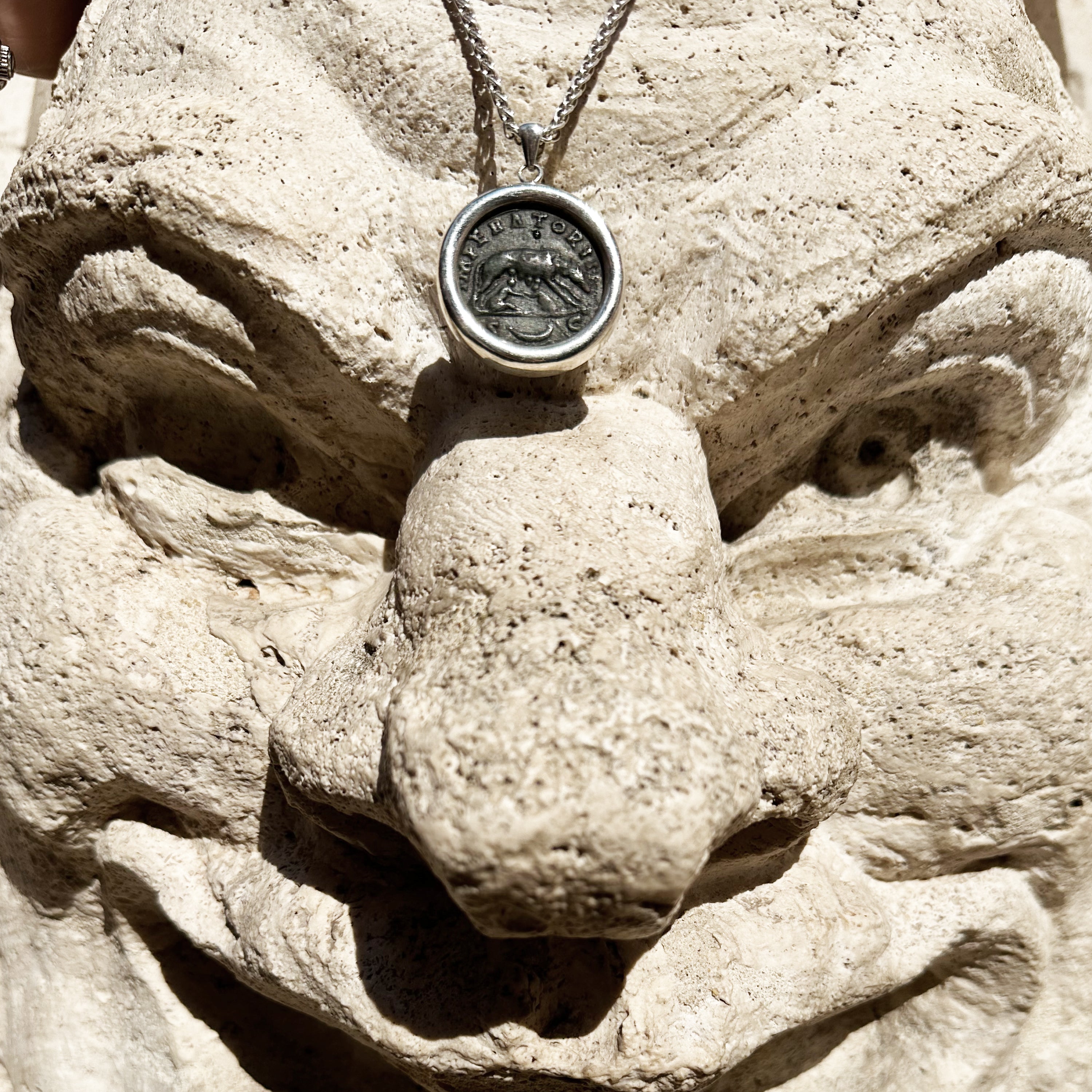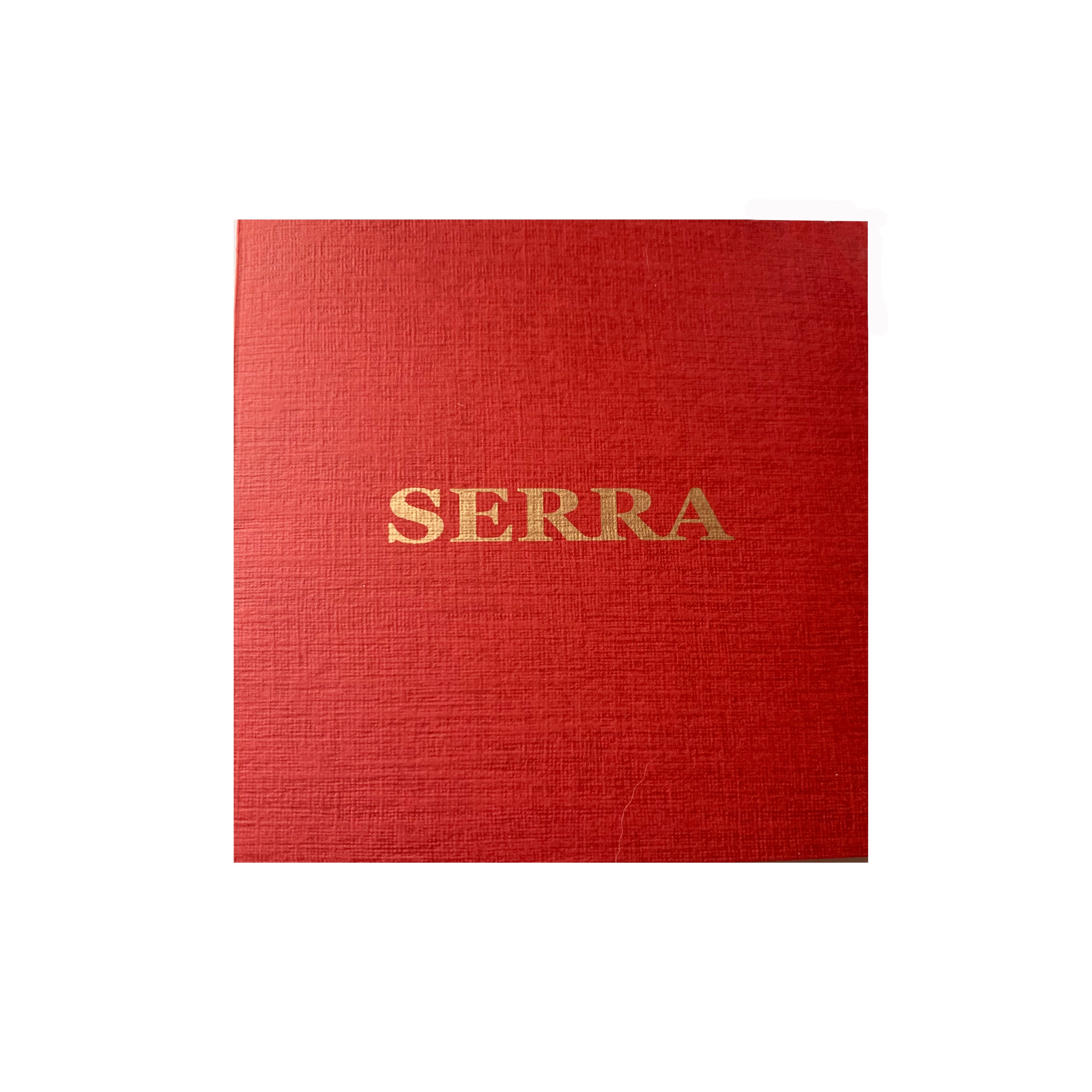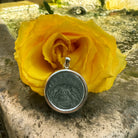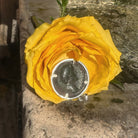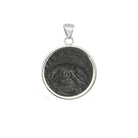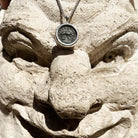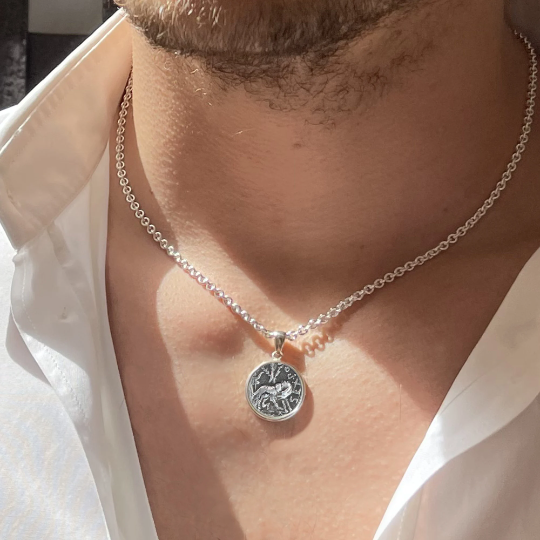SHE WOLF AND TWINS Genuine Ancient Roman Bronze Coin 2nd cent. AD Silver Pendant
This sterling silver pendant proudly showcases an authentic Roman bronze coin featuring the iconic imagery of the Capitoline Wolf nurturing the twins Romulus and Remus. On the reverse side, a depiction of emperor Antoninus Pius.
Wolves hold a significant place in Roman mythology, especially in the tale of Rome's legendary founders, Romulus and Remus, who were famously rescued by a she-wolf. As the myth goes, King Amulius of Alba Longa ordered the twins' demise by casting them into the Tiber River. However, the river god Tiber intervened, calming the waters and leading their basket to become ensnared in the roots of a fig tree at the foot of the Palatine Hill, the future site of Rome's foundation. Discovered and nurtured by the she-wolf, known as "Lupa," the twins thrived and became central figures in Roman lore, depicted in countless artworks throughout the empire.
Subsequently, the twins were found and raised by a shepherd and his wife, Faustulus and Acca Larentia. Throughout the Roman era, the she-wolf symbolized the power and authority of Rome, thus appearing frequently in art and on Roman coinage, spanning both the Republican and Imperial periods. The earliest known statue depicting the she-wolf suckling the twins dates back to 296 BC, erected by Gnaeus and Quintus Ogulnius, likely near the Lupercal, the cave traditionally associated with the she-wolf's den.
Additionally, dedications to the she-wolf, such as those to the 'Roman she-wolf' and the 'august She-Wolf' (Lupa Augusta), were made in various Roman provinces by priests of the 'imperial cult,' emphasizing the close connection between the she-wolf and the Roman state.
Our jewelry store, Serra Roma, proudly presents an exquisite collection that beautifully honors the ancient traditions of Greek and Roman civilizations. Each piece in our collection, including authentic ancient Roman and Greek coins and intaglios, is accompanied by a certificate of authenticity, providing proof of its historical significance and origin.

